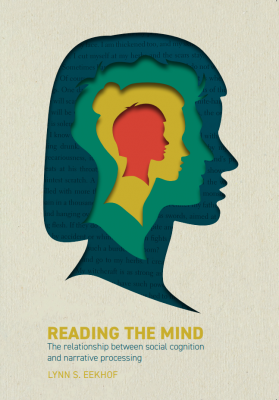Lynn Eekhof defends thesis on 15 January

Having a good conversation with friends in a pub or crawling away alone on the couch with a book: at first glance, these forms of pastime have little in common. Yet social interaction and reading stories share something essential. Both a good conversation and an enjoyable reading experience require us to empathize with other people and to try to understand what they are thinking and feeling. In short, in both cases we need to take on someone else’s perspective. In social interaction, these are the perspectives of “real” others; in stories, these are the perspectives of (fictional) characters.
The everyday skills we use to empathize with others are referred to as social-cognitive abilities. These abilities include processes such as empathy and “reading” other people’s minds. This dissertation examined how these skills and reading stories are related. The research findings suggest that there is a mutually reinforcing relationship between social cognition and stories. Because we use our social cognitive skills to make sense of stories, reading regularly improves those skills. That, in turn, causes us to empathize with characters better and faster while reading. In other words, stories influence our social cognition, and our social cognition influences how we read stories.
Share this page